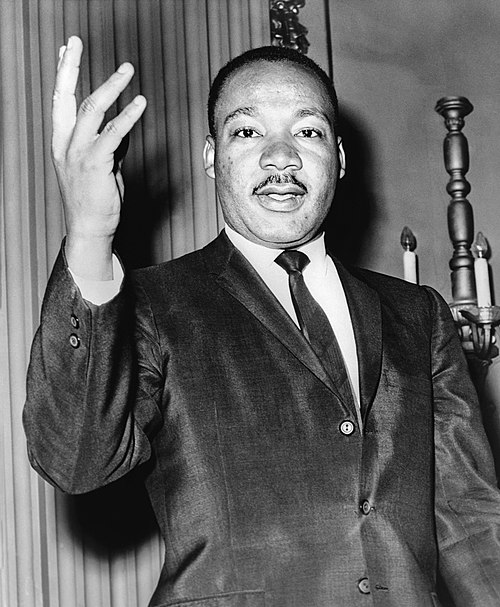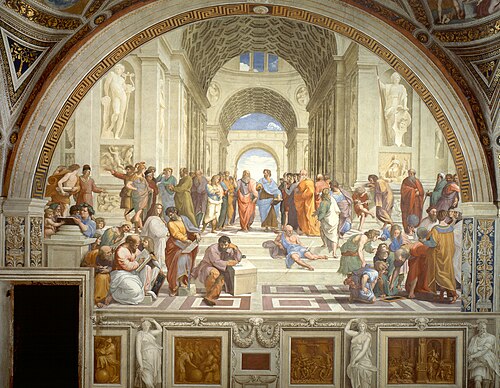Philosophynoun
The love of wisdom.
Philosophynoun
(uncountable) An academic discipline that seeks truth through reasoning rather than empiricism.
Philosophynoun
(countable) A comprehensive system of belief.
Philosophynoun
(countable) A view or outlook regarding fundamental principles underlying some domain.
Philosophynoun
(countable) A general principle (usually moral).
Philosophynoun
(archaic) A broader branch of (non-applied) science.
Philosophynoun
A calm and thoughtful demeanor; calmness of temper.
Philosophynoun
synonym of small pica|nodot=1.
Philosophyverb
To philosophize.
Philosophynoun
Literally, the love of, inducing the search after, wisdom; in actual usage, the knowledge of phenomena as explained by, and resolved into, causes and reasons, powers and laws.
Philosophynoun
A particular philosophical system or theory; the hypothesis by which particular phenomena are explained.
Philosophynoun
Practical wisdom; calmness of temper and judgment; equanimity; fortitude; stoicism; as, to meet misfortune with philosophy.
Philosophynoun
Reasoning; argumentation.
Philosophynoun
The course of sciences read in the schools.
Philosophynoun
A treatise on philosophy.
Philosophynoun
a belief (or system of beliefs) accepted as authoritative by some group or school
Philosophynoun
the rational investigation of questions about existence and knowledge and ethics
Philosophynoun
any personal belief about how to live or how to deal with a situation;
Philosophynoun
the study of the fundamental nature of knowledge, reality, and existence, especially when considered as an academic discipline.
Philosophynoun
a particular system of philosophical thought
Philosophynoun
the study of the theoretical basis of a particular branch of knowledge or experience
Philosophynoun
a theory or attitude that acts as a guiding principle for behaviour
Philosophy
Philosophy (from Greek: φιλοσοφία, philosophia, 'love of wisdom') is the study of general and fundamental questions, such as those about existence, reason, knowledge, values, mind, and language. Such questions are often posed as problems to be studied or resolved.
Ideologynoun
Doctrine, philosophy, body of beliefs or principles belonging to an individual or group.
Ideologynoun
(uncountable) The study of the origin and nature of ideas.
Ideologynoun
The science of ideas.
Ideologynoun
A theory of the origin of ideas which derives them exclusively from sensation.
Ideologynoun
A set or system of theories and beliefs held by an individual or group, especially about sociopolitical goals and methods to attain them; in common usage, ideology is such a set of beliefs so strongly held by their adherents as to cause them to ignore evidence against such beliefs, and thus fall into error - in this sense it is viewed as a negative trait; contrasted to pragmatism, and distinct from idealism.
Ideologynoun
an orientation that characterizes the thinking of a group or nation
Ideologynoun
imaginary or visionary theorization
Ideology
An ideology (/ˌʌɪdɪˈɒlədʒi/) is a set of beliefs or philosophies attributed to a person or group of persons, especially as held for reasons that are not purely epistemic, in which Formerly applied primarily to economic, political, or religious theories and policies, in a tradition going back to Karl Marx and Friedrich Engels, more recent use treats the term as mainly condemnatory.The term was coined by Antoine Destutt de Tracy, a French Enlightenment aristocrat and philosopher, who conceived it in 1796 as the to develop a rational system of ideas to oppose the irrational impulses of the mob. In political science, the term is used in a descriptive sense to refer to political belief systems.



















